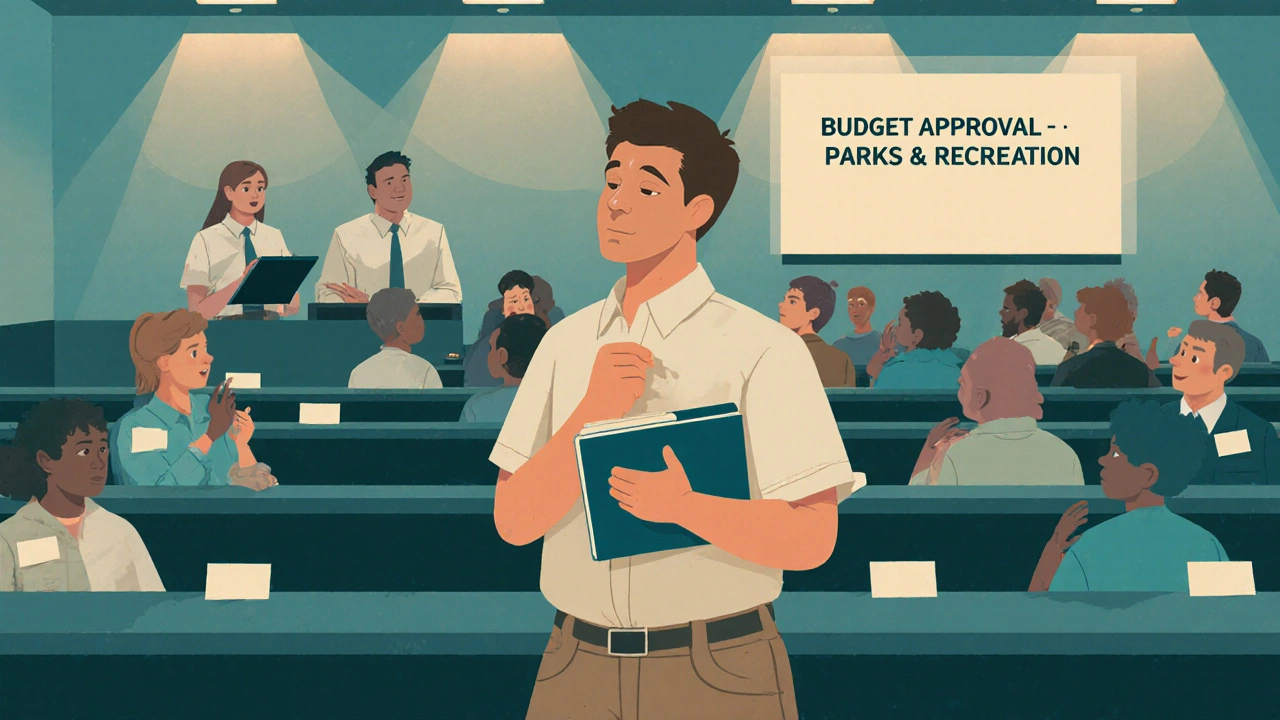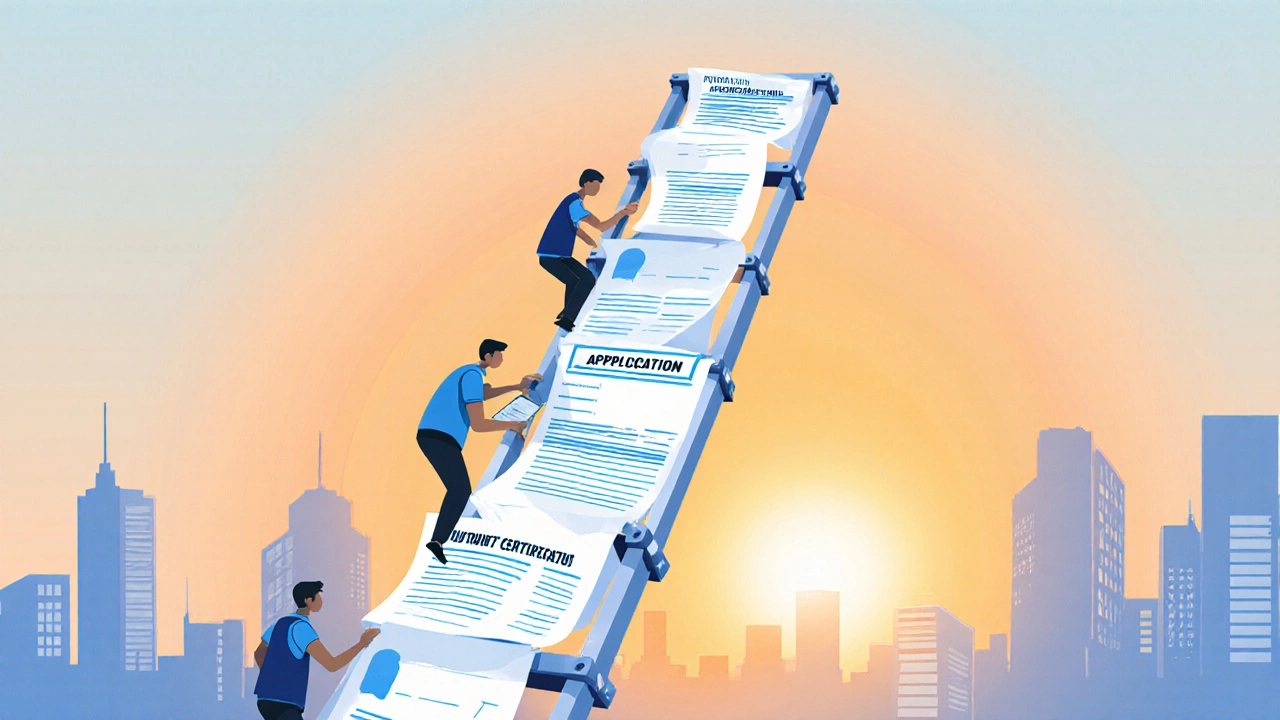Civil Service Exam Preparation Planner
Prepare for Your Local Government Exam
Create a personalized study plan for civil service exams required for local government positions. The guide below is based on the 2025 hiring process.
Exam Focus:
Estimated Preparation Time:
Key Skills to Practice:
Sample Questions:
Study Progress Tracker
Start studying to see your progress
Important Notes
Local government exams test your ability to follow rules, process information, and handle public service scenarios. Remember:
- Use the official sample questions from your city's hiring portal
- Practice under timed conditions
- Be honest about your criminal history if asked
- Prepare for the oral interview with common scenarios like handling angry citizens
Getting a job in local government isn’t about knowing the right person or luck. It’s about showing up with the right documents, the right mindset, and the right timing. Thousands apply every year. Only a few get hired. The difference? Preparation. This isn’t a vague advice list. It’s a clear path based on what actually works in 2025.
Understand What Local Government Jobs Actually Are
Local government isn’t one job. It’s dozens. You could work as a park ranger, a building inspector, a public transit scheduler, a social services caseworker, or a city accountant. These roles fall under municipal, county, or regional agencies. They’re not federal. You won’t be working in Washington D.C. You’ll be working in your city hall, county courthouse, or local public works depot.
These jobs are stable. Benefits are strong-health insurance, pension plans, paid leave. But they’re not flashy. You won’t see them on LinkedIn ads. They don’t pay like tech startups. But they offer something rarer: predictability. If you want to live in one place, raise a family, and know what your paycheck will look like in five years, this is the path.
Find Openings-Don’t Wait for Them to Find You
Most local government jobs aren’t posted on Indeed or Glassdoor. They’re on local government job portals. Every city, county, and town has its own hiring site. In 2025, over 85% of municipal hires come through these direct channels.
Start here:
- Search “[Your City] government jobs” or “[Your County] employment opportunities”
- Bookmark the official site-don’t rely on third-party job boards
- Sign up for email alerts. Many portals let you create a profile and get notified when new postings go live
Don’t wait until you’re unemployed to start looking. Check these sites every two weeks-even if you’re currently working. Jobs open up unexpectedly. A retiree leaves. A budget gets approved. A new program launches. You need to be ready when that happens.
Know the Application Process-It’s Not Like Private Sector Jobs
In the private sector, you send a resume and hope for an interview. In local government, you fill out a formal application. Often, you can’t even attach a resume. You have to enter every detail into a web form: dates of employment, supervisor names, education history, even your references.
Here’s what you’ll face:
- Application forms that require exact dates (no “approximately” allowed)
- Questions about criminal history-answer honestly. Many roles don’t disqualify you for past offenses if they’re unrelated to the job
- Required documents: transcripts, licenses, certifications, proof of residency
One mistake: using a generic resume. Local governments want you to match their form. If they ask for your job duties in bullet points under each employer, don’t copy-paste from your LinkedIn profile. Rewrite it to fit their format. It’s tedious, but skipping this step means your application gets rejected before it’s even read.

Prepare for the Civil Service Exam
More than half of local government jobs require you to pass a civil service exam. This isn’t a test of IQ. It’s a test of your ability to follow rules, process information, and handle public service scenarios.
Types of exams:
- Written tests: Reading comprehension, basic math, clerical skills
- Practical tests: Typing speed, data entry, filing systems
- Oral interviews: Role-playing customer service situations, answering ethical questions
Study materials are free. Most cities publish sample questions on their hiring pages. For example, if you’re applying for a city clerk job, look for “City Clerk Civil Service Exam Practice Questions.” Download them. Take them under timed conditions. Repeat until you score above 85%.
Don’t skip the oral interview prep. Many candidates ace the written test but freeze in the interview. Practice answers to questions like:
- “How would you handle a citizen who’s angry about a parking ticket?”
- “What would you do if you saw a coworker breaking protocol?”
- “Why do you want to work for this city?”
There’s no trick. The answer is always: professionalism, patience, and following procedure.
Build the Right Experience-Even If You Don’t Have It
You don’t need a degree in public administration to get hired. But you do need to show you can handle public-facing work.
If you’ve never worked in government, here’s how to bridge the gap:
- Volunteer at city events-festivals, food drives, town halls
- Join a neighborhood association or community board
- Work part-time at a nonprofit that partners with the city
These aren’t just resume fillers. They prove you understand how local government interacts with real people. Interviewers notice. One applicant in Austin got hired as a housing specialist after volunteering for three years helping seniors fill out utility assistance forms. She didn’t have a degree. But she knew the system from the inside.

Network-But Not Like You Think
Networking in local government isn’t about LinkedIn connections or coffee chats with city managers. It’s about showing up at public meetings.
Attend city council sessions. Go to planning commission hearings. Sit in the back. Take notes. Ask one thoughtful question. Don’t try to impress. Just be present. Over time, you’ll be recognized-not as someone asking for a job, but as someone who cares about the community.
Many hiring managers say they remember applicants who showed up to meetings. It signals commitment. It’s not about who you know. It’s about proving you’re already part of the community.
Wait-And Keep Applying
The hiring cycle in local government is slow. Applications close. Then there’s a waiting period. Then exams are scored. Then interviews are scheduled. Then background checks. Then offers are made. It can take 3 to 6 months.
Don’t get discouraged if you don’t hear back right away. Apply to multiple positions at once. Even if they’re not your dream job. A clerk role today can lead to a planner role next year. Many people start in entry-level positions and move up internally.
Keep updating your application profile. Add new volunteer work. Complete online courses in public administration or budgeting. Send a polite follow-up email after 60 days if you haven’t heard back. Most agencies appreciate persistence.
What Happens After You Get Hired?
You’ll likely start on probation for 6 to 12 months. Use that time to learn the system. Ask questions. Take notes. Build relationships with coworkers. Don’t rush to change things. Local government moves slowly. Your job isn’t to fix everything-it’s to do your part well.
After your probation, you’ll be eligible for promotions. Many agencies offer tuition reimbursement for degrees in public administration, urban planning, or social work. Use it. Advancement is possible. One sanitation worker in Cleveland became a city operations manager after earning a bachelor’s degree and taking internal leadership courses.
This isn’t a fast track. But it’s a real one. And it’s one of the few career paths where your work directly improves your neighbors’ lives.
Do I need a college degree to get a job in local government?
No, not always. Many entry-level roles like clerical assistant, park maintenance worker, or library aide only require a high school diploma or GED. Some positions, like social worker or engineer, do require a degree. But most hiring managers prioritize experience, reliability, and passing the civil service exam over formal education.
How long does it take to get hired after applying?
It usually takes 3 to 6 months from application to offer. Some roles fill faster if there’s an urgent need. Others take longer if the budget is under review. Don’t assume silence means rejection. Follow up after 60 days with a polite email asking about next steps.
Can I apply for multiple local government jobs at once?
Yes, and you should. Apply to as many relevant openings as you qualify for. Each application is independent. Getting hired for one doesn’t disqualify you from others. Many people apply to 5-10 positions at a time to increase their chances.
Are local government jobs secure?
Yes, compared to most private-sector jobs. Layoffs are rare unless there’s a major budget crisis. Most positions are protected by civil service rules. Once you pass probation, you have due process rights. You can’t be fired without cause.
What if I have a criminal record?
It depends on the job and the offense. Most local governments don’t automatically reject applicants with past convictions. If the crime isn’t related to the job-like a DUI for a library assistant position-it often won’t matter. Be honest on the application. Many agencies have policies that consider rehabilitation and time passed since the offense.

Write a comment